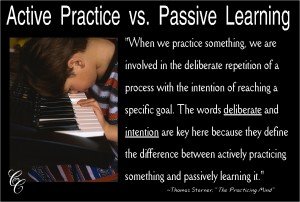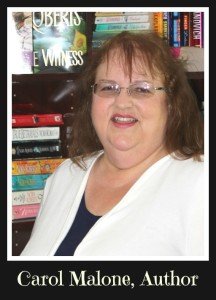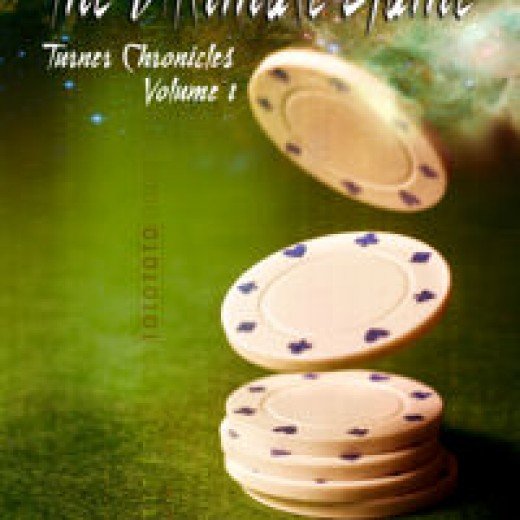Stop Thinking About Your Goals and Do Something! Active Practice vs. Passive Learning by Carol Malone
 Please welcome author Carol Malone who edits a newsletter for the Ventura County Writers Club in Ventura, California. Each month she crafts articles to inspire writers in her local area and today she’s sharing her article on motivation vs habit as it concerns us as writers. Enjoy!
Please welcome author Carol Malone who edits a newsletter for the Ventura County Writers Club in Ventura, California. Each month she crafts articles to inspire writers in her local area and today she’s sharing her article on motivation vs habit as it concerns us as writers. Enjoy!
***
Back in my early adulthood, I sat in a workshop where the instructor beat us over the head about setting goals. Right now I can’t remember much of what he said, but I do remember I thought long and hard about goal setting, but not so much about how I might actually reach a goal. I don’t remember the instructor teaching us the practical steps of working at a goal.
So I began frustrated, disillusioned, and quit. The mere mention of the word “goal” sent me into a panic. Still does. As a result, I stopped setting goals and basically drifted through life. Oh, I achieved lots of stuff: I graduated from college, got a good job, did some traveling, served my church, found my husband, and became a mom. All wonderful goals and fulfilled the wishes I’d had a child. So don’t get me wrong—I did accomplish great stuff. But I didn’t do it intentionally.
I mistakenly thought that if I learned enough, goals would be achieved without working at them.
Man! Was I wrong. All the education in the world wasn’t going to get me what I desired unless I did something. Moved. Acted. Practiced something new.
I’ve recently read an article by James Clear, a motivational speaker, writer, fitness expert, and one of the few inspirational people I follow religiously. What I like about James is his practical look at life and goals. He doesn’t write from the perspective of, “hey look at me, I did it, so can you.” He’s a humble guy with a desire to really help people. I found his article titled, “Stop Thinking and Start Doing: The Power of Practicing More,” inspirational.
How often in our lives do we think we’ve got to learn more to achieve more?
If you’re like me and bettering your writing skills is your immediate goal, you’ll want to read and study and learn as much as you can. But the caveat is, if we want to be a writer, why don’t we sit down and write? Why it is easier to believe we can learn more about writing by reading about it than physically writing?
Why is writing so hard for a writer?
James writes in his article, “new knowledge does not necessarily drive new results.” This is not to say that learning the skills needed to become a great writer aren’t necessary; they most definitely are. But if we don’t DO something, if we don’t PRACTICE those skills, then all the mental learning will have done us no good. Reaching the goal of becoming a great writer boils down to the “difference between learning and practicing.”
Let’s say I want to be a great writer. I could read all the books on creative fiction, interview published authors, go to conferences, buy books in my genre, read consistently and constantly, join writing groups and clubs, register for online webinars on the subject of writing, but until I sit down, put my fingers to the keys of my computer, none of that learning, though wonderful, will garner me a written and published book.
We have to practice our writing and publishing consistently to get noticed and to feel like an author.
James would like us to consider “three reasons to prioritize active practice over passive learning.”
- Learning can be a crutch that supports inaction.
Have you ever thought learning could actually be a deterrent to taking action to reach your goals? We could be rationalizing our inaction or “merely spinning our wheels,” and not moving forward. “Learning is valuable until it becomes a form of procrastination,” James writes. So reading a book about writing makes us feel like we’re moving forward, gaining experience, however, unless we practice what we’ve just learned, all that education is not worth much.
- Practice is learning, but learning is not practice.
We all know the wonderful benefits of learning and education. However, even though we might learn a new skill intellectually, if we don’t put that education into action, we’re not going to gain anything from our new-found knowledge. Practice, or work, is the only way to put what we’ve learned to use. Then the learning will be beneficial, not only to us, but to other whom we want to serve. And we all want to be able to serve our fellowmen.
- Practice focuses your energy on the process.
 “Progress is a natural result of staying focused on the process of doing anything.”
“Progress is a natural result of staying focused on the process of doing anything.”
—Thomas Sterner, The Practicing Mind. Our life consists of habits we’ve learned and continue to practice. If we want better habits, like understanding and using the S.M.A.R.T. technique to plan, set, and work toward achieving our goals. But if we don’t WORK at our daily practices, all the education won’t benefit us or help other people. James reminds us, “it is not the things we learn nor the dreams we envision that determines our results, but rather [the] habits that we practice each day.”
I love this quote by Thomas Sterner, The Practicing Mind.
So what’s in it for you?
We lay in the grass and dream of lofty writing goals all we want, study thousands of books on writing theory, read valuable websites and blogs of information on writing skills, take workshops, webinars, and conferences on the subject of writing until our brains scream, “no more!”, but if we don’t write, or practice working consistently, the vast education and terrific information can be seen as an excuse to “delay the more difficult and more important choice of actually doing something.”
Your challenge: How can you, as a writer, spend a little less time learning about writing and more time actually writing?
***
About the author:
 Carol Malone is a multi-book published author who writes romantic suspense to rocket readers into the past of to uncover a hard-fought happily-ever-after. She also writes historical romance to transport readers to an era of innocence when everything seemed possible. If not hammering out new tales, Carol is reading, watching sports, the Food Network or HGTV, or hanging with her author husband on the coast of California. She loves to connect with her readers on her website, Twitter, and on Facebook.
Carol Malone is a multi-book published author who writes romantic suspense to rocket readers into the past of to uncover a hard-fought happily-ever-after. She also writes historical romance to transport readers to an era of innocence when everything seemed possible. If not hammering out new tales, Carol is reading, watching sports, the Food Network or HGTV, or hanging with her author husband on the coast of California. She loves to connect with her readers on her website, Twitter, and on Facebook.
Website: http://carolmalone.net/
Facebook: https://www.facebook.com/carolmaloneauthor
Twitter: https://twitter.com/CarolAnneMalone
Fight Card Romance: Ladies Night






